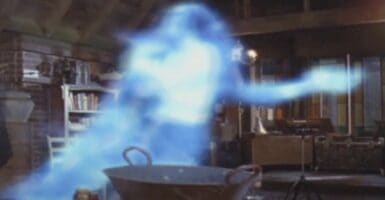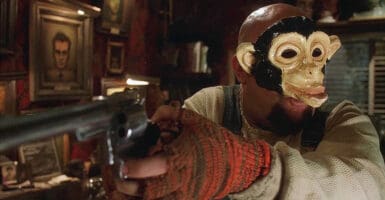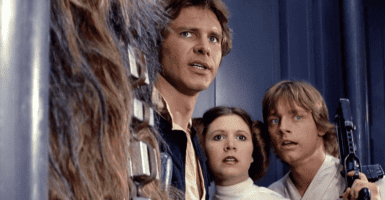Genre Writers Weigh In On The Difference Between Science Fiction And Fantasy
This article is more than 2 years old
Science Fiction vs. Fantasy is an age-old battle between genre fiction fans, but like most battles it comes down to personal taste and sensibility. Whether it’s Isaac Asimov vs. Terry Goodkind, or Arthur C. Clarke vs. J.R.R. Tolkien, genre fiction fans have been arguing about two genres pretty much as long as there have been two genres. A new video from digital publisher Open Road Integrated Media asks some of their writers to discuss the differences between the two subsets of genre fiction. According to author Alan Dean Foster, science fiction is the literature of the possible and fantasy is the literature of the impossible. Check out the video below:
The line between science fiction and fantasy is thin when you really look at how they’re constructed. SF relies on real technology and science as a jumping-off point, while fantasy uses magic and fantastic elements, but both have to be internally consistent in how their universe works. Both use those genre trappings as metaphors to address age-old questions and problems. Both are about exploration and seen through the eyes of the human condition, but one can be aspire its reader to action while the other can inspire its reader to creation. Again, it’s that emphasis on the possible and impossible that makes these genres appealing. Like any good fiction, both genres can act like a mirror to society, politics, and religion, reflecting the ugliness or beauty that lies within.
The bigger argument is the notion that genre writing is “less than” literary writing. Is it because genre writing is inherently pulpier than “proper” literature? Sometimes genre fiction bleeds into literary fiction, such as in George Orwell’s 1984 and Animal Farm or Aldous Huxley’s Brave New World. But it seems like there is probably never going to be an argument between the merits of J.D. Salinger against Ray Bradbury.












